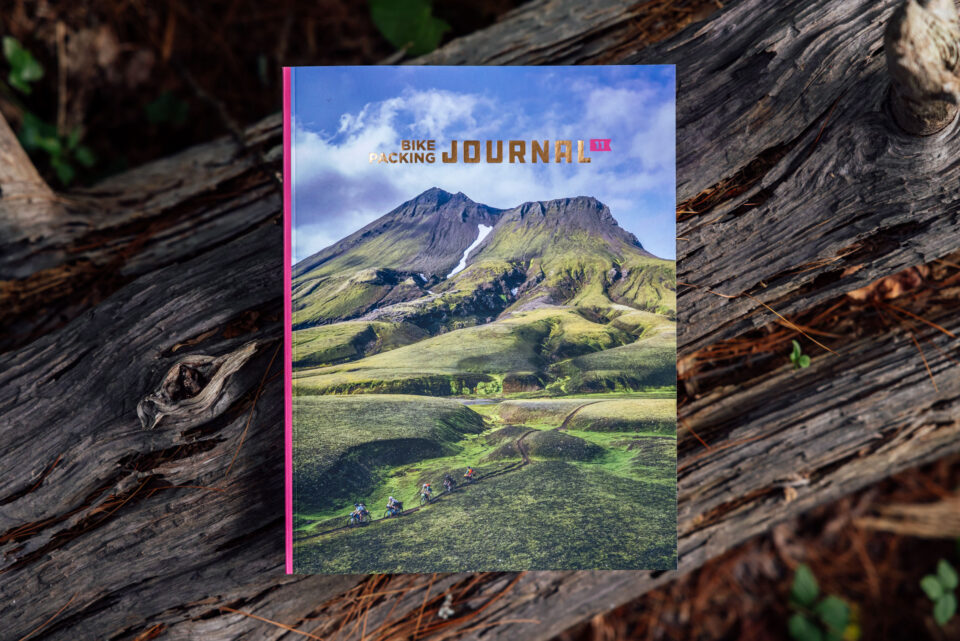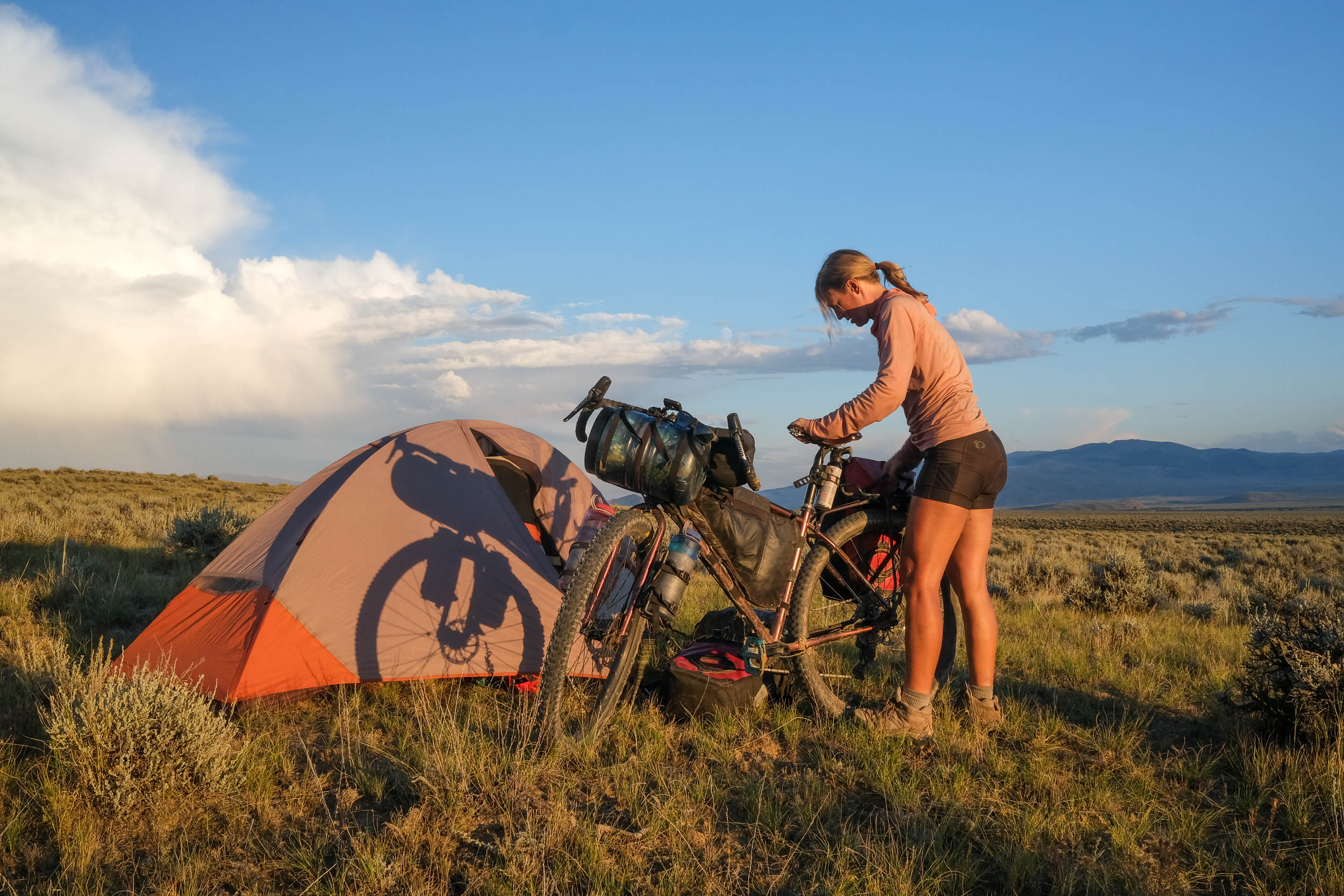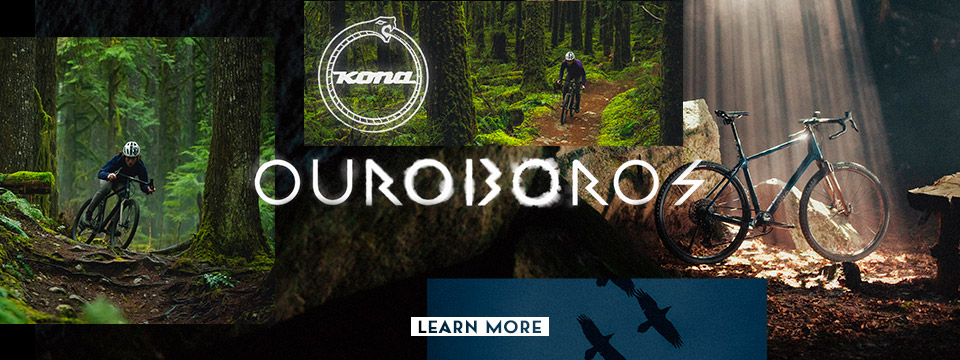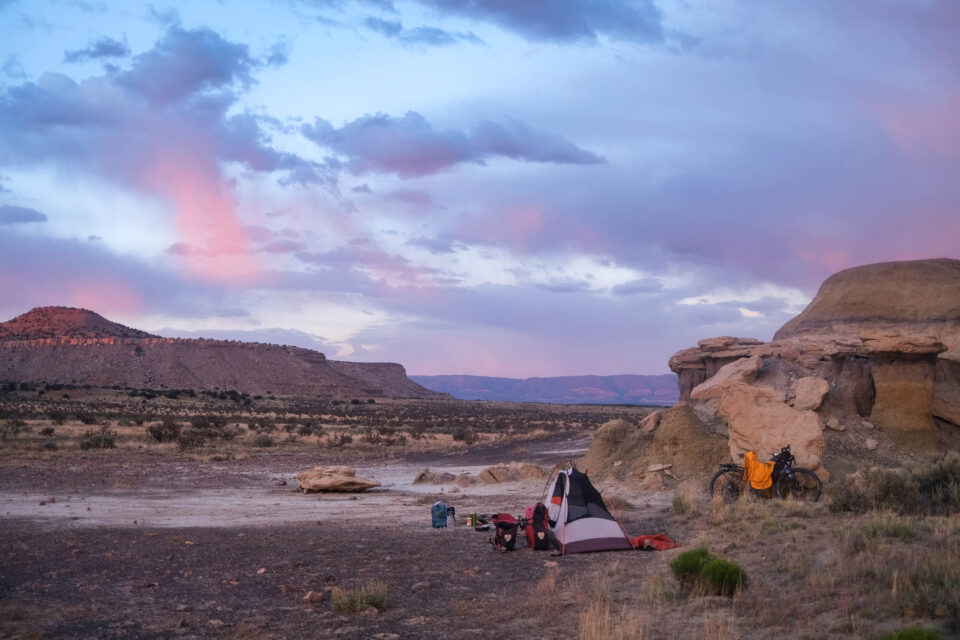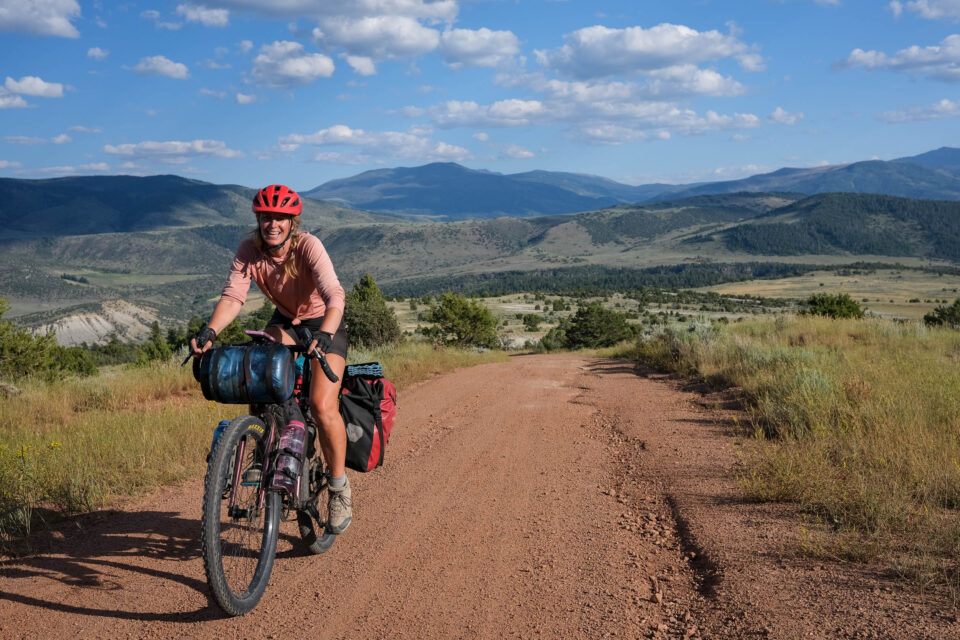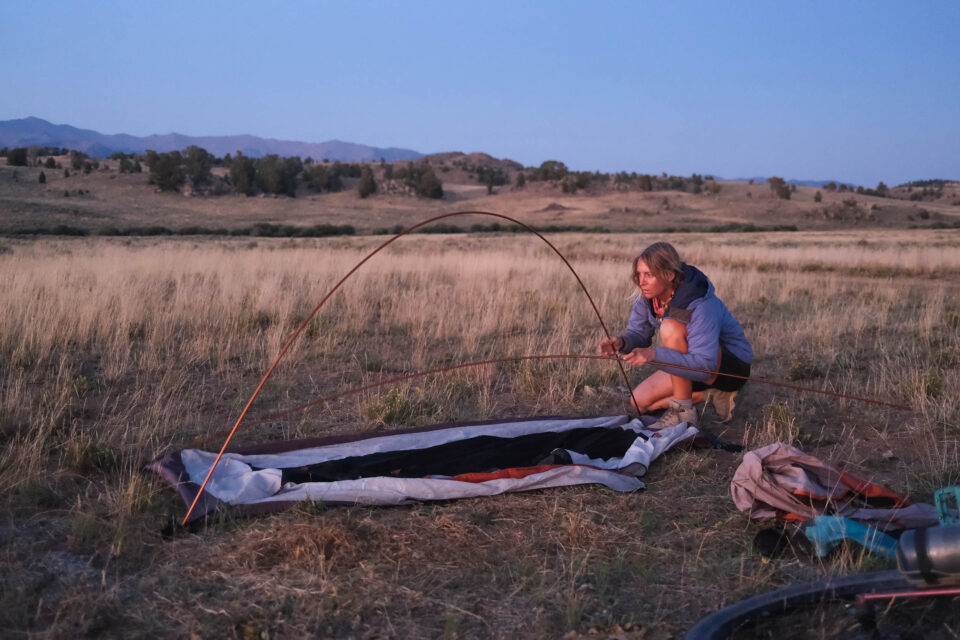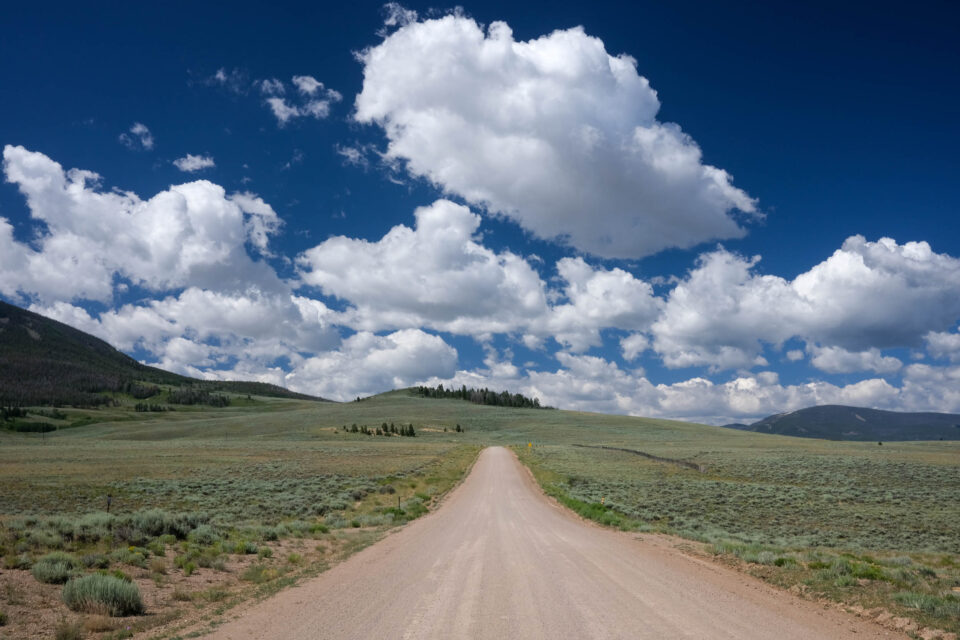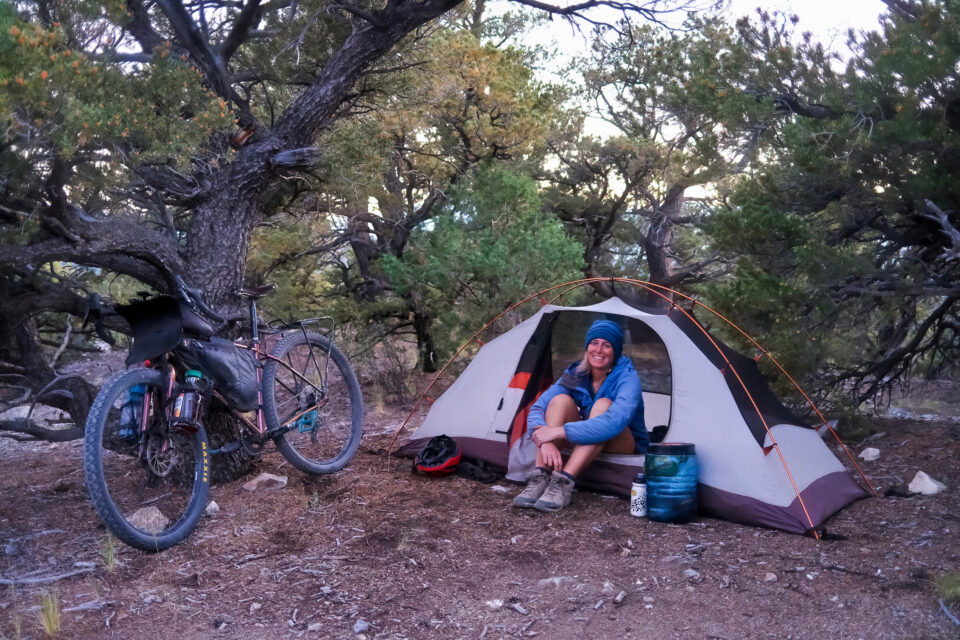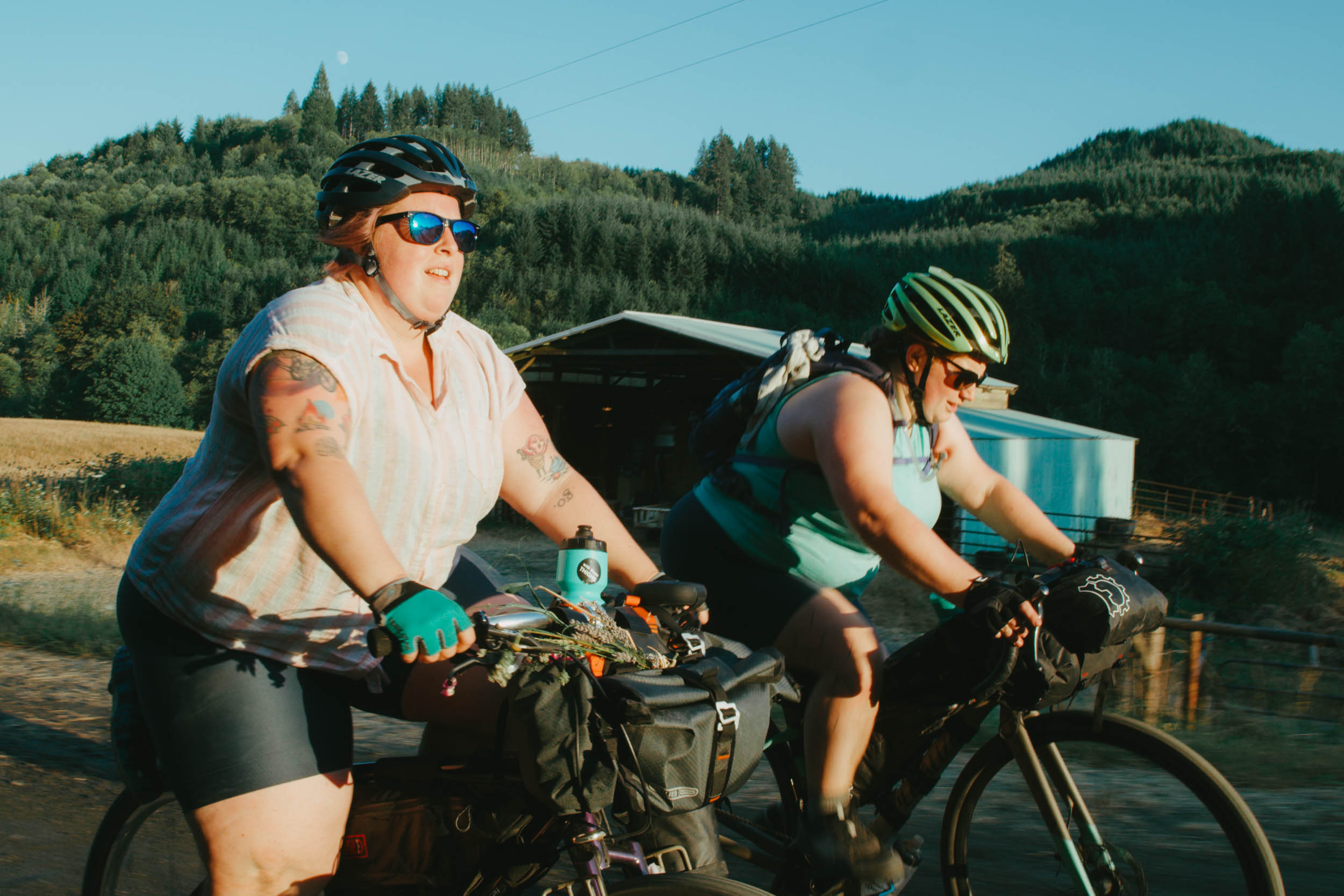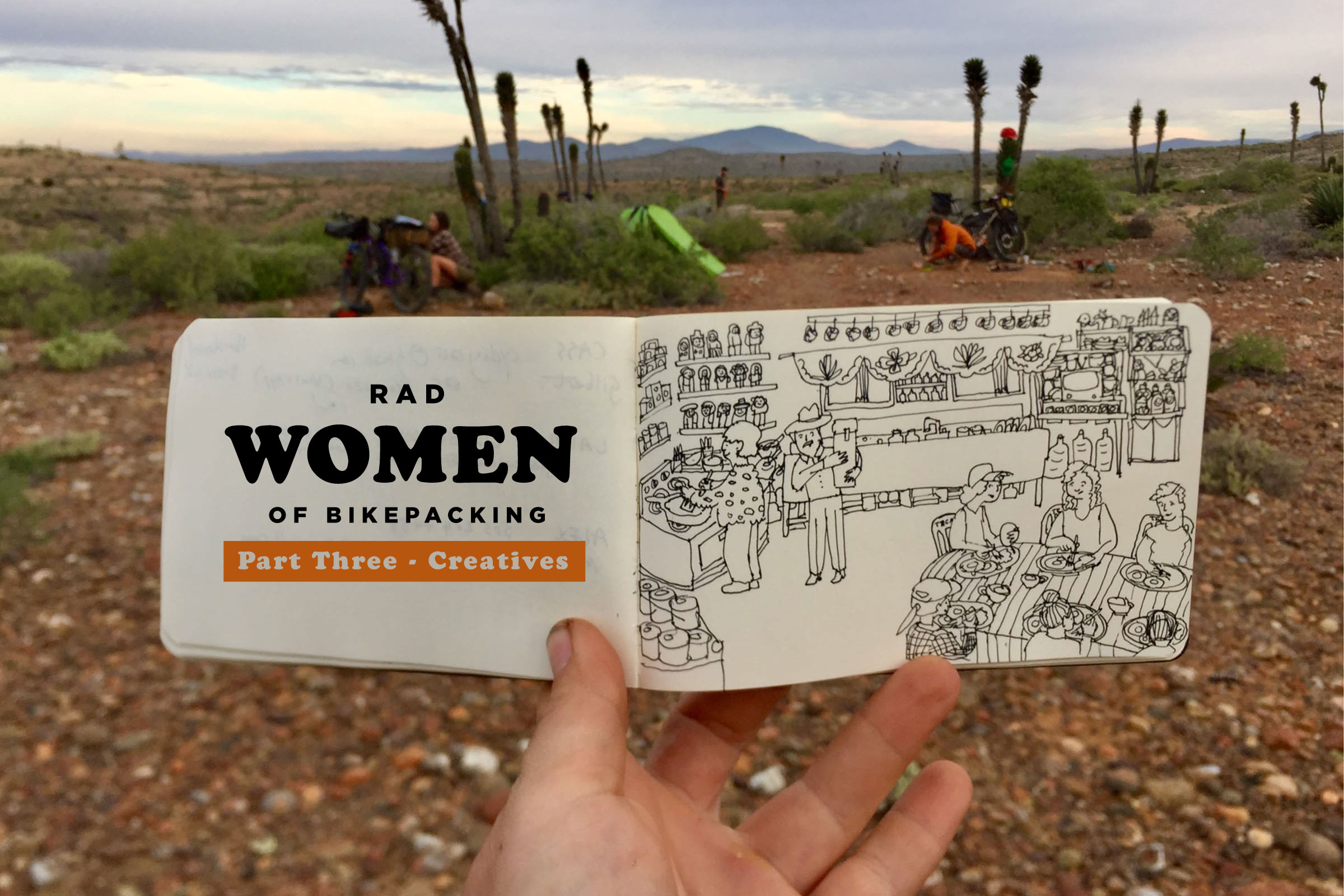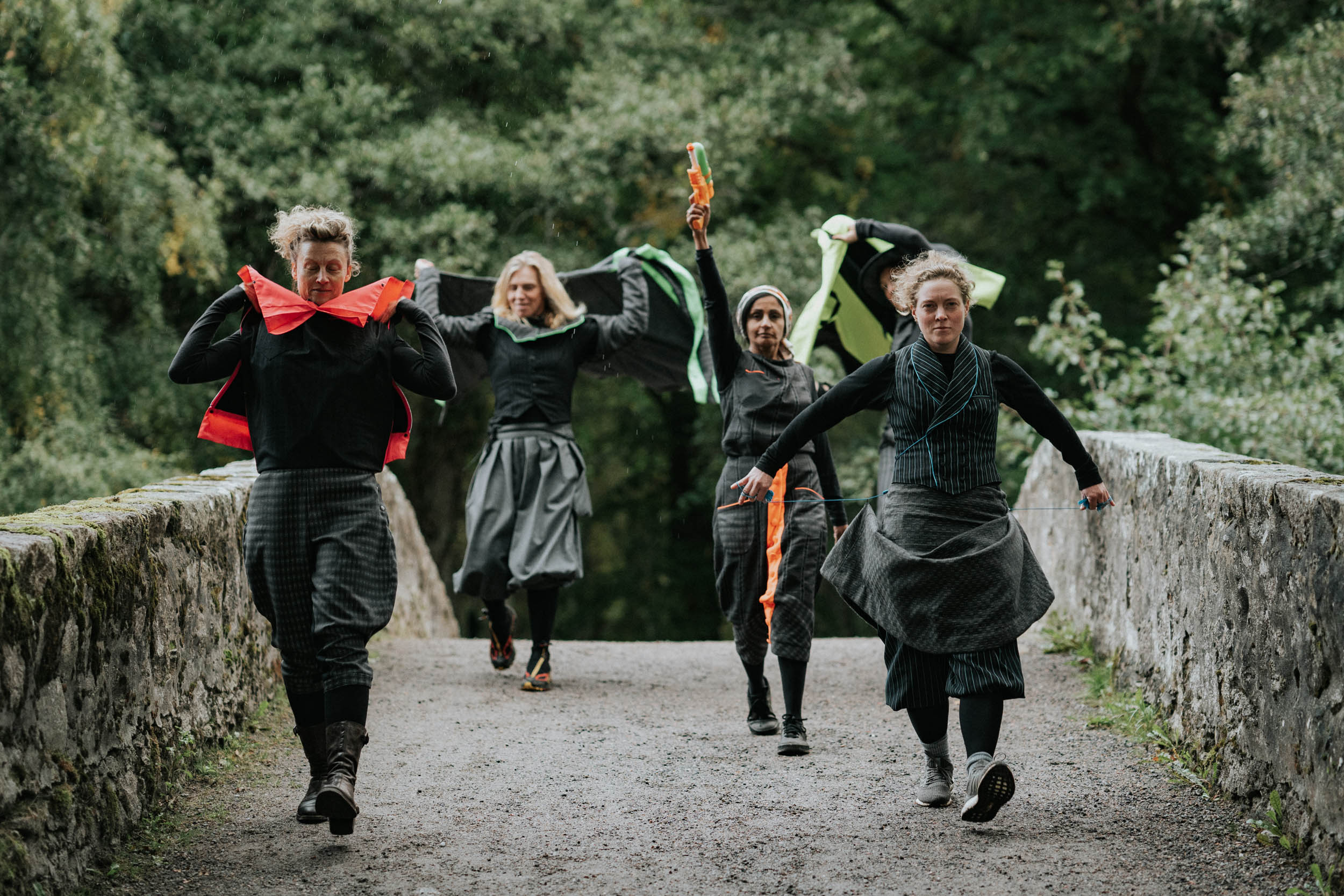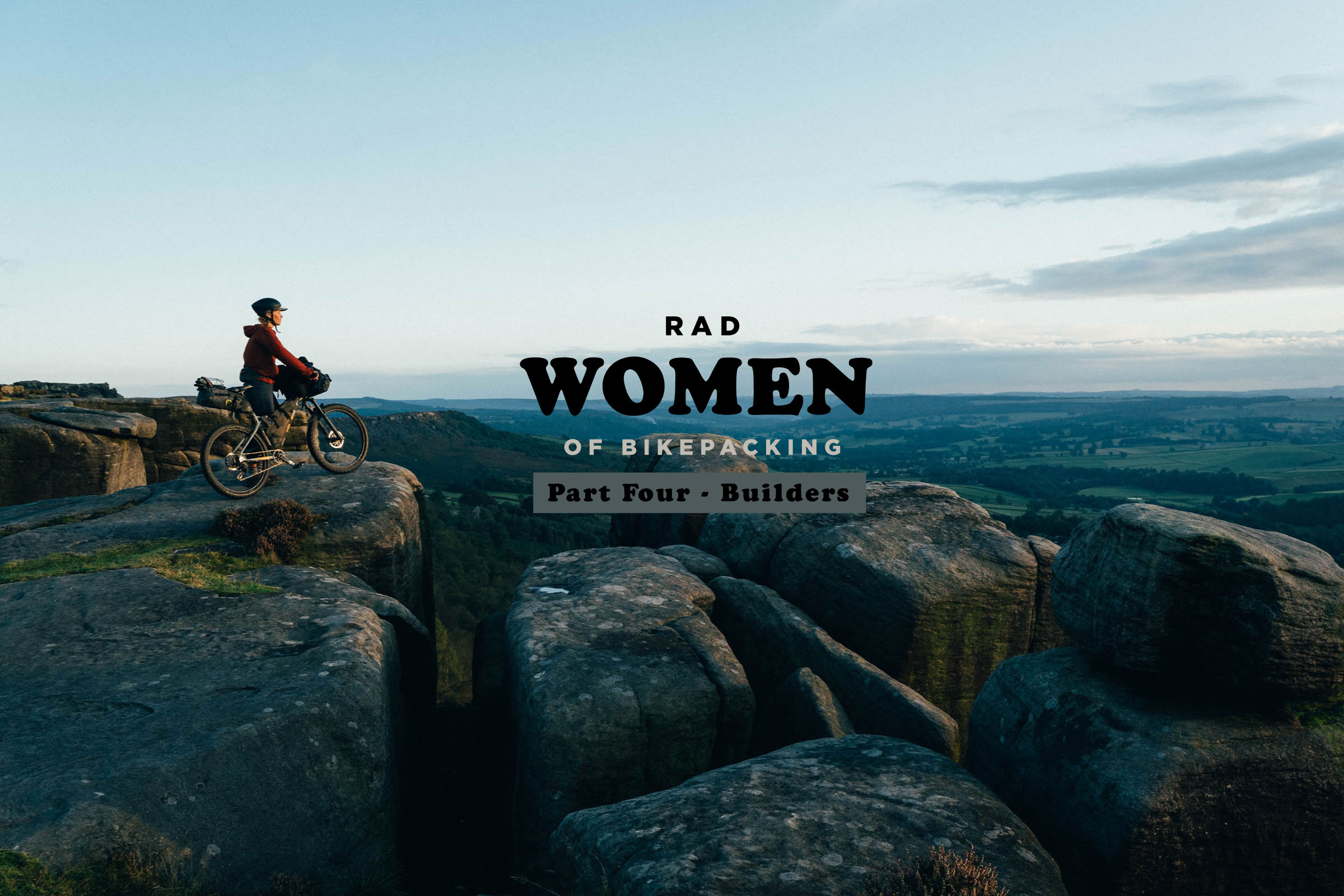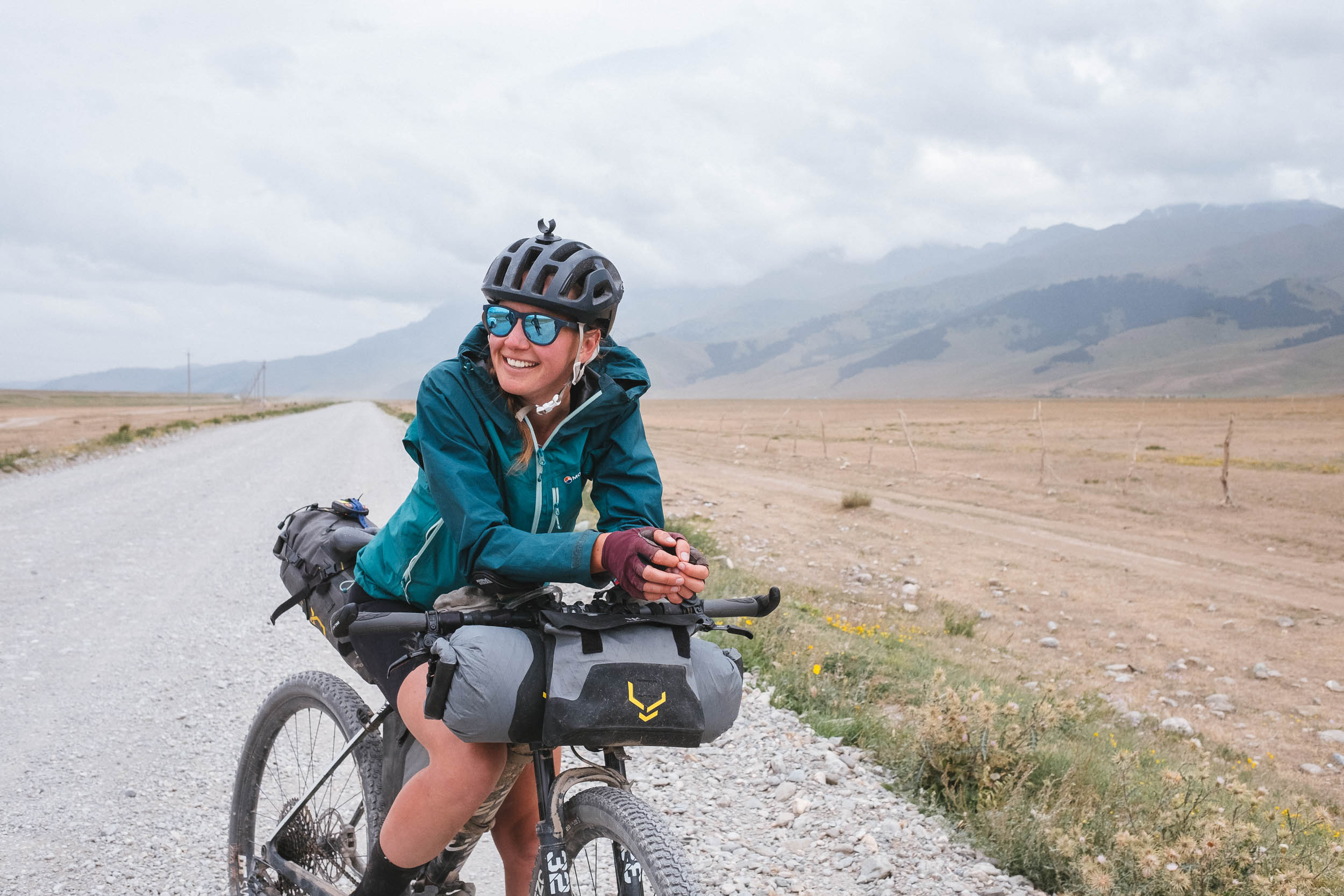A Woman Who Left Society to Live With Bears Weighs in on “Man or Bear”
The “Man or Bear” debate recently went viral online, with women sharing their thoughts on whether they’d rather be stuck in the forest with a man or a bear. In this piece, long-term bicycle traveler Laura Killingbeck reflects on the question and adds her unique perspective to the conversation. Read it here…
PUBLISHED May 22, 2024
When I was 23, I packed up my bike and camping gear and caught a one-way flight to Alaska. My relationship with mankind no longer felt tenable. I didn’t want to be female in society; I wanted to be free. I spent the next three and a half months pedaling down North America’s grizzly-filled coast from Anchorage to San Francisco. Out there in that rugged expanse, with my body in motion and my heart unfurled, I found boundless joy. And that joy did make me a little more free.

It wasn’t the first time I’d left on that kind of journey, nor would it be the last. I’ve spent most of my life traveling open roads, seeking solace in nature, looking for the edges of myself and the world. When I was 18, I packed a bag and thumbed my way across Mexico. At 20, I pedaled alone around Iceland. I’ve now biked and hiked thousands of miles across the Americas, often solo. These trips have shaped and defined me.
When I’m out in nature, I become a body on nature’s terms, free from social context. This freedom also feels like security: I return home to my deepest self.
I’ve always loved men. I’ve always found it easy to get along with men, to travel with men, to befriend men. Many of the people I cherish most in this world are male.

I’ve also spent most of my life trying to extract myself from patriarchy. I’ve had to learn how to say no to men, to protect myself from men, and get away from men in ways that have been crucial to my survival. I’ve had to learn how to trust my intuition, value my feelings, and claim my agency in ways that have defied “ladylike” behavior. I’ve done this through trial and error, dedicated study, and deep, often painful excavations of my own interior. I’ve gone to nature again and again to study what it feels like to be fully human.
One of my favorite writers, Prentis Hemphill, wrote, “Boundaries are the distance at which I can love you and me simultaneously.” To love myself in patriarchy, I’ve often had to put a lot of distance between myself and men.
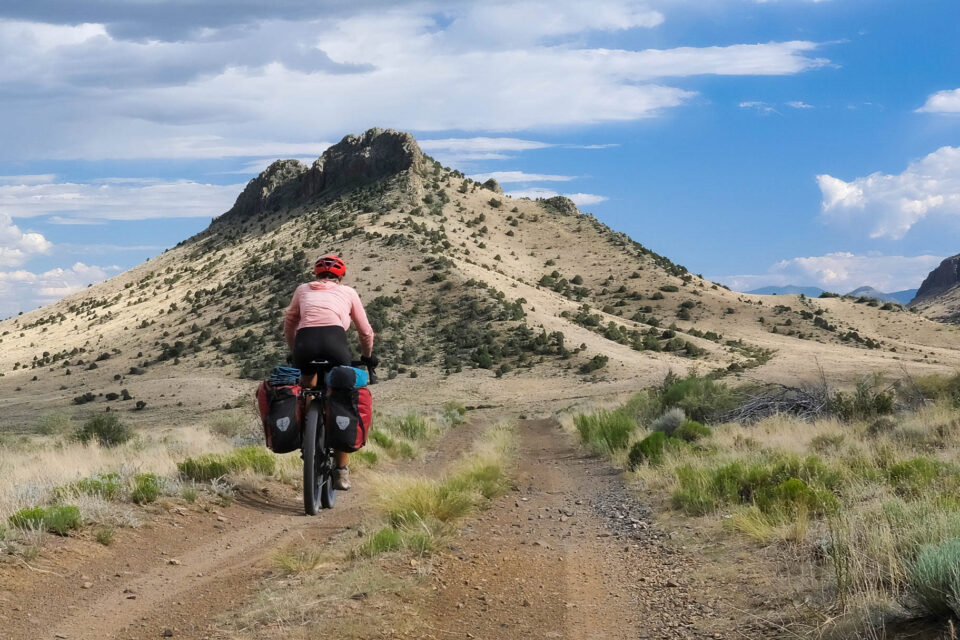
There is nothing wrong with men. Men are lovable people with the same capacity for empathy, agency, and growth as any other human on the gender spectrum. But when men are socialized to identify their humanness as masculinity and to associate masculinity with power, we get some real problems. These are the problems of patriarchy.
Patriarchy is often defined as a social system that is male-identified, male-dominated, and male-centered. It depends on a heteronormative gender binary that serves to divide and outsource human traits to different halves of the population.
In patriarchal societies, human traits associated with power and control are outsourced to men: domination, assertiveness, independence, decisiveness, and ambition are called masculine, and men are expected to conform to masculine traits.
Human traits associated with care and relationality are outsourced to women: empathy, nurturing, adaptation, and cooperation are called feminine, and women are expected to conform to feminine traits.
Sexism as an ideology is based on the belief that this division of traits is immutable and biologically mandated; therefore, it’s only “natural” that men inhabit positions of power while women serve caregiving roles. This is coupled with the belief that masculine traits are superior and more valuable, and feminine traits are inferior and less valuable.
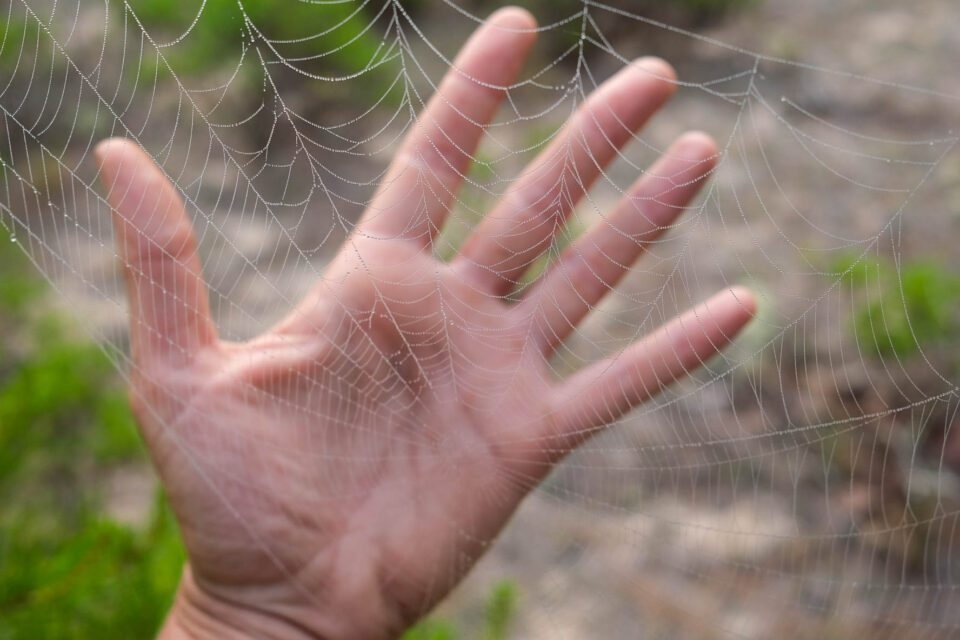
Symptoms of patriarchy include gender-based violence, sexual harassment, toxic relationality, oppressive divisions of labor, gender-based pay gaps, and a nearly infinite list of large and small ways that power is continuously diverted to men, and men are socialized to identify with power and control over care and relationality. These symptoms have the most impact on women of color, Indigenous women, poor women, and people who inhabit multiple intersections of oppressed demographics.
Symptoms of patriarchy also include social patterns that are harmful to men, including male violence against other men, a higher risk of suicide, reduced quality of relationships, and a lower life expectancy. In a blog post for Next Gen Men, writer Veronika Ilich describes patriarchy as “one of the single largest threats to men’s mental and physical health.”
Patriarchy has everything to do with men, but at the same time, nothing at all. In a male-centered society where maleness is associated with power, what’s really being centered is power itself. What’s suppressed is mutual relationality. Patriarchy is intertwined with colonialism, racism, and other oppressive social structures based on hierarchy. It is a fundamental fracturing of our human wholeness.

Last year, I spent over eight months on my bike. I pedaled down the Pacific Coast, across the Southwest, and up the length of the Great Divide. I cooked food on my tiny twig stove and camped each night under the stars. I don’t know if I’ve ever been so happy.
One day in Colorado, I stopped at a thrift store. When I passed the jewelry section, a necklace caught my eye. It was a rose quartz heart on a silver chain. I picked it up.
Sometimes, people ask if I’m running from something–if all these miles are a retreat from the world. But when I saw the necklace, I saw the journey that I’ve been on. Nature has taught me to keep an open heart. I love this world, and I’ll do whatever it takes to be fully here. The reclamation of human wholeness is part of our shared legacy. We all belong to this conversation.
I have worn that heart necklace ever since, like a talisman.
Man or Bear
I don’t spend a huge amount of time surfing the web. But recently, so many people posted bear memes that even I got sucked into “Man or Bear,” a rowdy internet debate that seems to have spawned from this viral Tik Tok video. In the video, a man asks eight women if they’d rather be stuck in a forest with a man or a bear. Seven out of eight women said they’d prefer the bear.
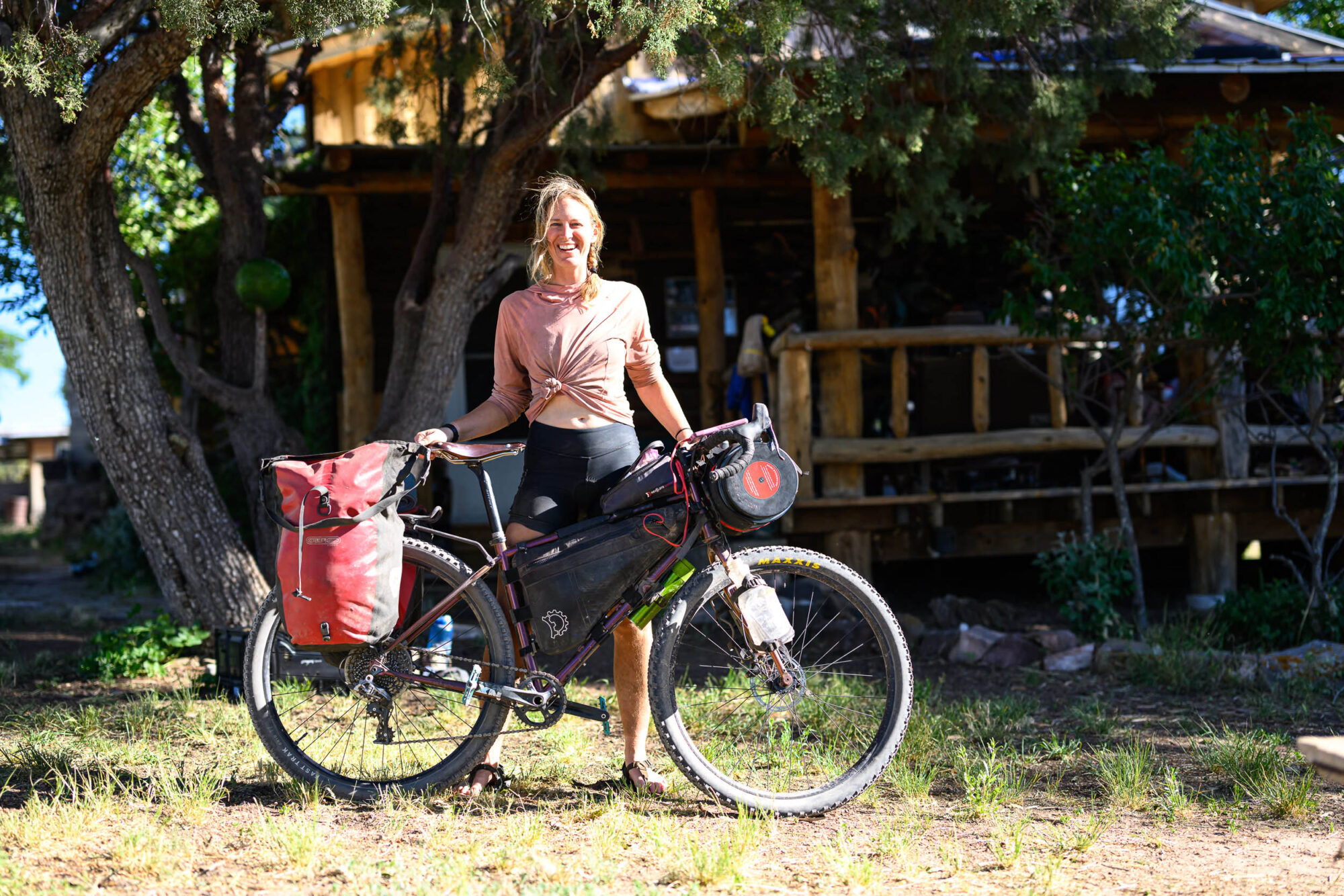
This led to a long stream of commentary from women describing their fear of men and male violence. In turn, this commentary was met with a backlash from men expressing anger and deriding women’s responses. An article published by CNN gives a recap of the fray.
The original video now has over 18 million views and over 75,000 comments. It’s led to countless replica videos, social media posts, and memes. And it’s opened up a larger conversation about gender-based violence and what it means to feel safe in the world.

I first read about this debate on my phone while camping in a field in my tent. It captivated me in a way that internet debates rarely do. Slowly, I realized why: for me, “Man or Bear” is not hypothetical. I’m literally a woman who left mankind behind to live in nature with bears. This is my actual life.
I’ve been writing about this choice for years in stories like “A Wild Female Human Creature,” “Biking to Bears,” and “When Men Take off Their Pants.” I also wrote about it recently for Bicycling in my story “Into the Wind.” These stories often include anecdotes about the kindness of men and my relationships with men. They’re stories about human complexity.
The Elephant in the Room is Not a Bear
One of the ironies of going to nature to free myself from mankind is that I do actually meet a lot of men out here. I’ve also met a lot of bears, but not nearly as many bears as men.
It’s still relatively uncommon for women to travel alone in the backcountry. Last year on the Great Divide, I met lots of solo men, men in pairs, and a few women traveling with men, but only a couple of solo women. I’ve noticed similar gender demographics on most of my long-distance cycling and hiking trips in the backcountry.
The central reason why fewer women travel alone is our fear of male violence and sexual assault. Actually, the most common question I get about my travels is some version of, “Aren’t you afraid to bike/hike/travel alone as a woman?” By naming my gender, the implication is clear. What people really mean is, “Aren’t you afraid of men?”
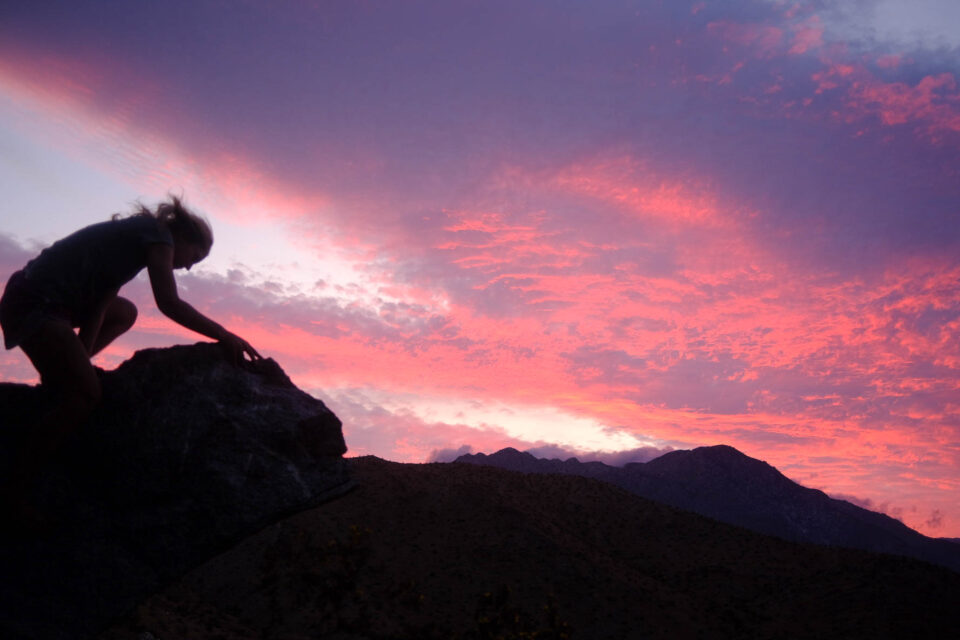
This leads us straight back to the original conversation about “Man or Bear,” which has nothing to do with bears. (Sorry, bears!) “Would you rather be stuck in a forest with a man or a bear?” is just another way of asking, “Are you afraid of men?” It’s the same question I’ve been fielding for the entirety of my life as a solo female traveler. It’s the same question that hovers over women all the time as we move through the world.
And it’s a question that’s always been difficult for me to answer. I’m not afraid of all men. But I am afraid of some men. The real problem is the gray area in between and what it takes to manage the murkiness of that unknown.
Stuck in the Forest With a Man
When I’m alone in the backcountry and come across a man, I feel a very low level of vigilance. Depending on the situation, I might even be happy to see him. He’s a fellow human! Maybe we’ll be friends! I’m likely to smile genuinely and say hello.
I don’t feel afraid, but I am aware. As we chat, my intuition absorbs a thousand things at once. His body language. His tone. How he looks at me and interacts. Most of the time, this produces an increased sense of security. Most men are friendly, respect my boundaries, and don’t want to hurt me. Most of the time, I feel very safe around men.
But not all the time. Sometimes, my intuition absorbs things that increase my level of vigilance. My awareness shifts into closer observation, and I look for signs of danger. Nothing is wrong, but it could go wrong very quickly.
It could be something he says. Maybe he makes a comment about my body or my appearance. Or he asks if I’m carrying a weapon and then presses for details about where I’m camping that night. Sometimes, it’s a shift in his tone, a leer, the way he puts his body in my space. But, usually, it’s a combination of things, a totality of behaviors that add up to a singular reality: this man is either not aware that he’s making me uncomfortable, or he doesn’t care. Either way, this is the danger zone. Even if he has no intention of harming me, the outcome of that intention is no longer possible for me to assess or predict.
In this moment, my mind snaps into a single, crystalline point of focus. My intuition rises to the surface of my skin. I become a creature of exquisite perception. The world is a matrix of emotional data: visceral, clear, direct.
I need to get away from the man. But I need to do it in a way that doesn’t anger him. This is the tricky bit. Men who lack social awareness or empathy often also lack other skills in emotional management. And usually, what men in these situations actually want is closeness. They’re trying to get closer to me, physically or emotionally, in the only way they know how. That combination of poor emotional skillsets and a desire to get closer is exactly what puts me in danger.
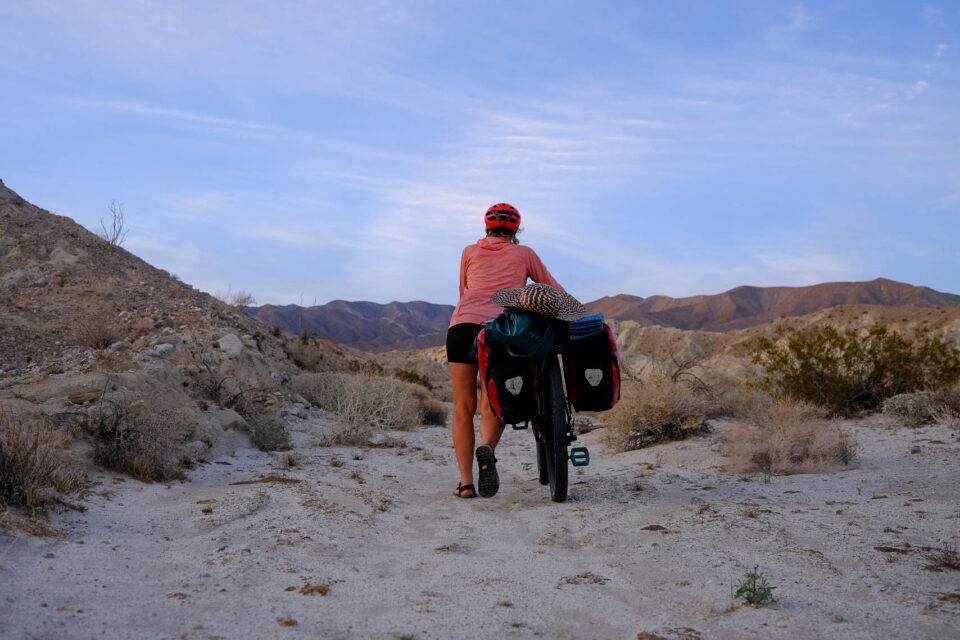
If I deny his attempts at closeness by leaving or setting a boundary, he could feel frustrated, rejected, or ashamed. If he doesn’t know how to recognize or manage those feelings, he’s likely to experience them as anger. And then I’m a solo woman stuck in a forest with an angry man, which is exactly what women are most afraid of.
There’s no time to think, so I operate on instinct. My task is ridiculously complex. I need to deescalate any signs of aggression, guide the man into a state of emotional balance, and exit the situation safely, all at once. This process requires all of my attention, energy, and intellect. It’s really hard.
I’ve been in this position so many times that it exhausts me just to write about it. Sometimes, it’s not that I’m afraid of men; I’m just really, really tired.
Stuck in the World With Patriarchy
In patriarchal societies where masculinity is coded as power and control, men often try to get closer to women through power and control. The range of how this plays out is vast. It could be inconsequential, or it could end a woman’s life. This is why seemingly small comments, gestures, or implications often trigger full-body vigilance. It may also be a reason why so many women in the “Man or Bear” debate chose the bear.
If men truly disliked women, they’d be glad so many women chose the bear! Women who chose the bear would be (hypothetically) farther away from them.

But lots of men were not glad; they were angry. And beneath that anger were probably lots of other feelings as well, the ones that patriarchy socializes men to mask: hurt, loss, frustration, sadness, loneliness. It’s sad when someone you want to be close to does not want to be close to you. It’s frustrating when you don’t know how to get that closeness. And it’s lonely. The angry men in this debate are very lonely men.
A Return to Wholeness
I believe that at the heart of this conversation–at the heart of most conversations–is a mutual quest for connection and wholeness. In all these years of wandering, this is what I have learned.
Sometimes, it’s hard to know where to end a story. But nature has taught me that nothing really ends; it just changes. We are all bodies of change.
Acknowledgments:
Special thanks to Round The Bend Farm, A Center for Restorative Community and The Heron Educational Center for the Human Spirit for providing me with time and space to work on this article.
Further Reading
Make sure to dig into these related articles for more info...
Please keep the conversation civil, constructive, and inclusive, or your comment will be removed.


